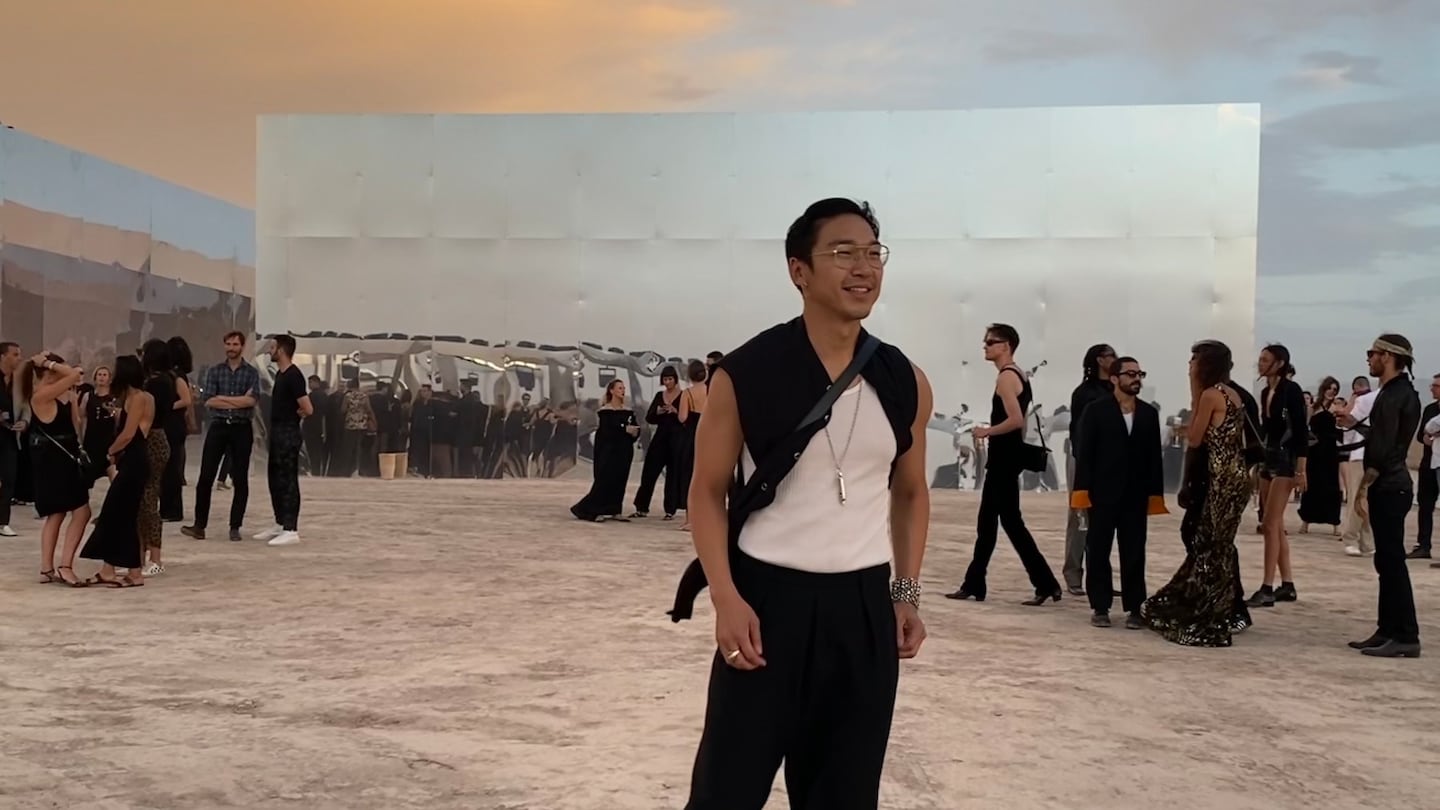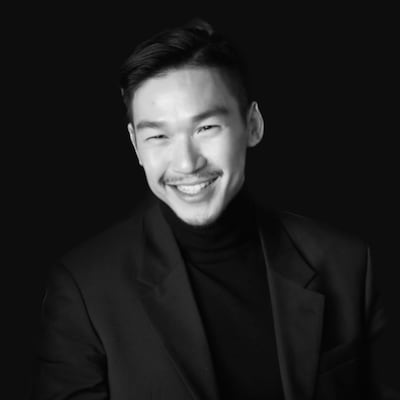
The Business of Fashion
Agenda-setting intelligence, analysis and advice for the global fashion community.

Agenda-setting intelligence, analysis and advice for the global fashion community.

Discover global job opportunities in marketing on BoF Careers today.
Following a “fascination with the construction of clothing, and branding and storytelling,” Jackie Wong started his fashion career in New York shortly after graduating from Stony Brook University with a degree in Environmental Studies and a focus on Economics and Business Management.
“My first step in fashion was in retail, working in a store,” he told BoF in the latest Building a Career in Fashion live event. “Nothing can prepare you for how to react when there’s a line of ten people on a busy Friday and you’re trying to make sure that you’re giving the right service, the customer’s having a great experience, and you’re folding the clothes, while there’s someone speaking to you in your headphones.”
He landed a role in marketing at Burberry before moving on to work as a client relationship management (CRM) analyst at Christian Dior. He left Dior as a CRM manager — a role he went on to hold at Moncler in 2016. He has since moved into omnichannel and currently works as an omnichannel CRM director in luxury fashion. Now, BoF shares key insights from Wong’s interview on Building a Career in Fashion.
ADVERTISEMENT
For the full interview, watch our LinkedIn Live, Building a Career in Fashion with Jackie Wong.
If you look at my background and what I studied, there wasn’t a huge amount of fashion there. A lot of biology, microbiology, chemistry — a lot of data, and days and nights in the lab. But moving back to NYC, I wanted to find a way to mix [in] things that I enjoyed, like fashion, and being creative. My family grew up in the garment industry — I’ve always had a fascination with the construction of clothing, and branding and storytelling — so I wanted to find a way to get into the industry.

You have to love the fashion world to be in it. My first step in fashion was in retail, working in a store. Nothing can prepare you for how to react when there’s a line of ten people on a busy Friday and you’re trying to make sure that you’re giving the right service, the customer’s having a great experience, and you’re folding the clothes, while there’s someone speaking to you in your headphones. There’s nothing that can actually teach you that besides just doing it.
I think the parallel in environmental science is that you are looking at a lot of hard facts, which really ties into the psychology of human behaviour. And CRM — what I do and what I’ve done in my career — is where we look at hard data. We have really been able to tell the story about why a consumer is buying or not buying something, or behaving a certain way. I think it’s really [about] understanding that there is an art and a science to it.
I don’t think you necessarily need to have that perfect balance. In my first data role, I remember staying late in the office and staring at the screen, thinking, “Why is this so complicated?” But now, we have so many resources — there’s a tutorial on every excel formula that you will ever need. These are skills that you can improve. Oftentimes, creativity has no logic — there’s a lot of emotion in it and a data-driven mindset is the opposite. So it’s about being able to understand the value in both.
Oftentimes, creativity has no logic — there’s a lot of emotion in it and a data-driven mindset is the opposite. So it’s about being able to understand the value in both.
[Burberry] was one of the first brands to partner with Salesforce, which is a CRM platform I still use today. I realised that not a lot of people were well-versed in CRM and that there wasn’t a lot of know-how — that really drew me into it.
You have to assume that your peers haven’t spent the time looking through everything because that’s not their expertise. CRM is a marketing tool. Marketing is about communication to the consumer. So really understanding where CRM fits into the bigger picture — that’s how you’ll get ears to perk and people to really start to listen.
I think that wherever you are, meet with people in other departments. If you send a message and are very honest about it: “I’m trying to find out more about this”, or, “I’m curious about this industry, this role, this part of the business”, most people are likely to reply.
ADVERTISEMENT
Give yourself a goal, like “I want to speak to three people today, ask about who they are, what they’re doing,” because you never know who you are going to run into.
I subscribe to every email from every brand. I subscribe to every text. I scan every QR code. I just want to know what people are doing and what innovations are happening.
I remember the biggest highlight [of my early career] was my first time in London with Burberry: it really felt like such a special place and special time, being an American in Europe for the first time. Some former colleagues are still my friends to this day — so I think aside from the career, being able to make some great friends along the way will be one of my highlights as a young professional.
I subscribe to every email from every brand. I subscribe to every text. I scan every QR code. I click on every Instagram ad. I just want to know what people are doing and what innovations are happening.
Another thing that is really valuable for me is having a network of like-minded CRM individuals in different industries — not just fashion. But also within fashion, having a network of people to discuss these topics with, both from a consumer perspective and from a fashion industry perspective. I think it’s important to just ask a lot of questions.
For Christian Dior, it was the time of Raf Simons — a complete change in the aesthetic. I think Moncler at the time was also in a shift where it was a fairly quiet brand in the US. But I was always going for a brand that was best in class in what they do, and that was what kept me really excited — knowing that a brand has a direction.
I think there’s a business acumen that’s needed. What I’m looking for usually is to figure out how this individual thinks and questions and problem solves. Often, there is no right answer, but someone who is very detail-oriented.
Then for the other part of CRM — the client engagement side. It’s about being able to understand what the consumer wants, using data to determine what experiences, activations, campaigns, will draw a consumer in. But I let my team really strive in what they are experts in and I’m just there to poke a little bit.
I would say be very good at your craft. I think it’s really about being willing to put in the work, absorb as much information as possible and really work on your skills.
For me, transitioning to different companies or brands, things that I have kept are the skills that I have built on my own. If I hadn’t spent hours staring at a screen in my early [career], I wouldn’t have been able to pinpoint certain things.
This interview has been edited and condensed for clarity.
Discover the most exciting career opportunities now available on BoF Careers — including jobs from Tapestry, Alexander McQueen and Toteme.
A US regulator has banned most uses of the clauses, which started as a way for fashion companies to prevent senior executives from walking off with trade secrets, but have become a standard retention tool.
Check out this week’s new partners and openings on BoF Careers, the global marketplace for fashion talent.
BoF Careers provides essential sector insights for fashion designers this month, to help you decode fashion’s creative and commercial landscape.